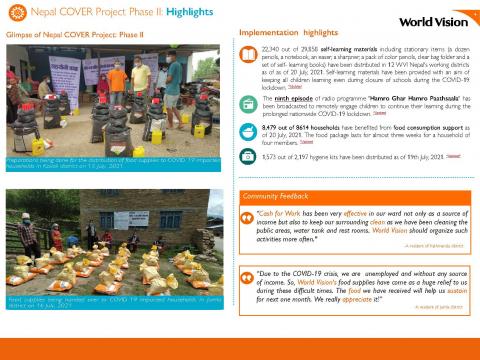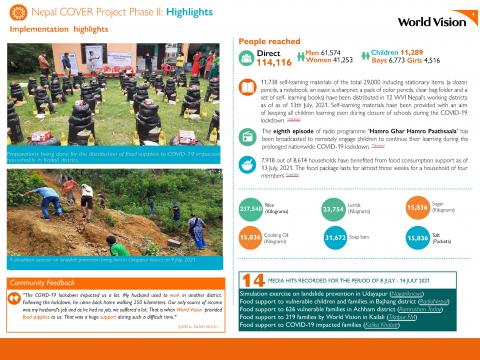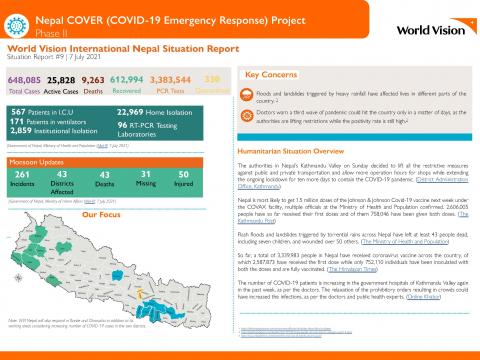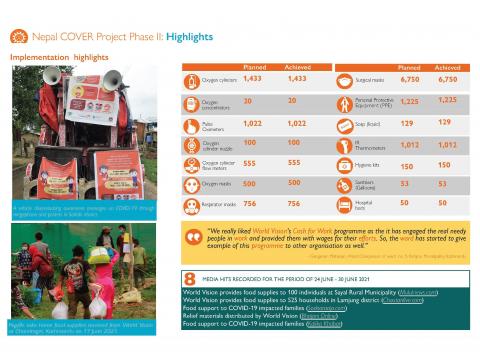Nepal COVER Project Phase II SitRep 12 (28 July 2021 update)
Download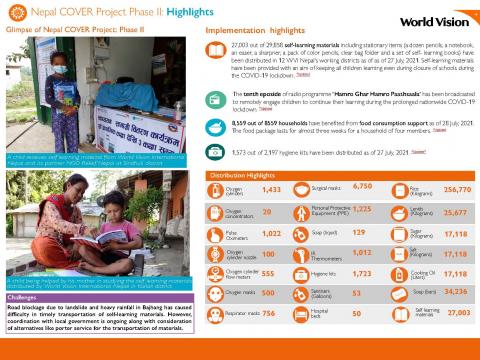
Following are the major highlights of Nepal COVER Project – Phase II, as of 28 July 2021:
- 27,003 out of 29,858 self-learning materials including stationary items (a dozen pencils, a notebook, an easer, a sharpner, a pack of color pencils, clear bag folder and a set of self- learning books) have been distributed in 12 WVI Nepal's working districts as of as of 27 July, 2021. Self-learning materials have been provided with an aim of keeping all children learning even during closure of schools during the COVID-19 lockdown.
- The tenth episode of radio programme "Hamro Ghar Hamro Paathsaala" has been broadcast to remotely engage children to continue their learning during the prolonged nationwide COVID-19 lockdown.
- 8,559 out of 8559 households have benefited from food consumption support as of 28 July, 2021. The food package lasts for almost three weeks for a household of four members.
- 1,573 out of 2,197 hygiene kits have been distributed as of 27 July, 2021.
- Major findings of the Post Distribution Monitoring are:
- In terms of appropriateness, all respondents appreciated the materials supported by World Vision, and its role in saving the lives of COVID-19 patients as well as limiting the spread of the Coronavirus.
- In case of timeliness, majority of the respondents felt that support in case of Oxygen Cylinder was a bit late in comparison to other items.
- Almost all the respondents said that they were satisfied with World Vision's distribution process. The detailed information about materials including the quantity mentioned in Accountability flex was viewed as a unique way of displaying transparency and was well appreciated.
- Most of the supported items were utilised during the COVID-19 crisis. Furthermore, some of the support have also been stocked up for any potential future crises.
- Most of the respondents denoted that they were satisfied with the quality of supported materials. However, there was some issue with the oximeters.
Share
